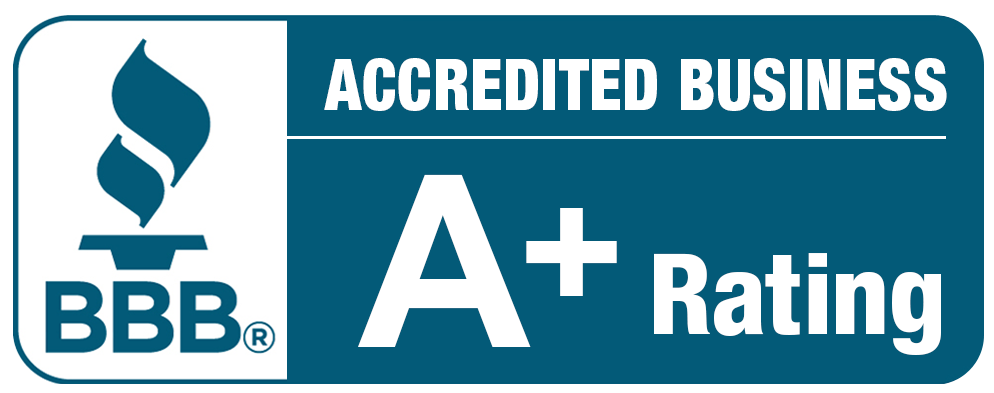When your business faces mounting debt, navigating through the financial turmoil can be overwhelming. For many small business owners in New York, filing for business bankruptcy is a critical step in managing debt and securing a fresh start. Understanding the process and the options available is essential to make an informed decision. In this guide, we will break down everything you need to know before filing for bankruptcy in New York.
Business bankruptcy is a legal procedure that provides protection for companies struggling with debt. It allows businesses to either reorganize or liquidate their assets to repay creditors. If you’re facing creditor lawsuits, maxed-out credit lines, or poor cash flow, bankruptcy can serve as a lifeline, offering an opportunity to either restructure your debts or exit with dignity.
If you’re an LLC or corporation, it’s essential to understand the distinction between your business’s obligations and your personal liabilities. In some cases, bankruptcy can protect personal assets, depending on the business structure and how finances are managed.
Before considering bankruptcy, it’s important to exhaust other business debt relief options. If these fail, filing for bankruptcy may be the best route to preserve your business’s future and protect your personal finances.
Before taking the step to file for bankruptcy, it’s wise to explore other potential avenues for resolving your business’s debt. Several options may offer relief without the need for bankruptcy:
Debt Negotiation: Contacting your creditors to negotiate a reduction in your balances or more favorable payment terms could prevent you from filing for bankruptcy.
Loan Restructuring: Working with your lender to restructure existing loans might allow you to extend repayment periods and adjust terms to make them more manageable.
Debt Consolidation: Consolidating multiple debts into one loan could simplify your finances and reduce interest payments.
Debt Relief Agencies: Partnering with a financial advisor or a reputable debt relief agency may help you identify the best strategy to avoid bankruptcy.
While these strategies can be effective, they may not always provide a long-term solution. If these options don’t yield the necessary relief, bankruptcy can offer a fresh start and the legal protections you need to recover.
Fill the form to request a free Business Debt Consultation Now!
By clicking “Continue” above, I understand and agree to the following terms and conditions:
When considering bankruptcy, it’s important to understand the different types that may apply to your business. The two most common types of bankruptcy for small businesses are:
Chapter 7 Bankruptcy: Also known as liquidation bankruptcy, this option is typically suitable for sole proprietors or businesses that are no longer operating. In this process, the business’s assets are sold to repay outstanding debts. Once the assets are liquidated, the remaining debts are typically discharged, and the business ceases operations.
Chapter 11 Bankruptcy: Chapter 11 is a reorganization bankruptcy, allowing businesses to remain operational while restructuring their debts. This process is particularly beneficial for companies that want to continue operations and avoid liquidation. Under Chapter 11, businesses can modify contracts, reduce debt amounts, and extend repayment periods under court supervision.
Chapter 13 Bankruptcy: This option is generally not available for most businesses but can be used by sole proprietors to reorganize both personal and business debts. Chapter 13 allows for debt restructuring and repayment over a period of time.
For small businesses in New York, Chapter 11 is often the preferred choice, as it provides an opportunity for reorganization while preserving the business’s ability to operate and recover.
Chapter 11 bankruptcy in New York is designed to allow businesses to reorganize and restructure their debts without closing their doors. This process offers several benefits, including:
Extended Repayment Periods: Business owners can extend repayment schedules, which can alleviate the immediate financial pressure.
Debt Reduction: In some cases, businesses can negotiate to reduce the total amount of debt owed, providing long-term relief.
Contract Modifications: Existing contracts, including leases and vendor agreements, may be renegotiated under Chapter 11, helping businesses save on operational costs.
While the Chapter 11 process can be complex and costly, recent reforms, such as the introduction of Subchapter V of Chapter 11, have simplified the process for smaller businesses, making it more accessible and cost-effective.
For businesses operating as Limited Liability Companies (LLCs), filing for bankruptcy involves specific considerations:
Legal Entity: An LLC is considered a separate legal entity from its owners, meaning that the owners’ personal assets are typically protected from business debts.
Asset Liquidation or Reorganization: Depending on whether the LLC plans to shut down or continue operations, it will choose between Chapter 7 (liquidation) or Chapter 11 (reorganization) bankruptcy.
Filing bankruptcy for an LLC can help limit the owners’ personal liability, but the process must be handled carefully to ensure the best outcomes for both the business and the owners.
If you are one of the many thousands of companies struggling with high interest business loans, call us today for a free consultation. Just taking the first step in talking to an expert can start relieving stress. And once you talk to a debt help specialist, you will see that there is hope.

Bankruptcy law is complex, and navigating the filing process requires an in-depth understanding of the legal landscape. That’s why seeking legal business debt help is crucial. A bankruptcy attorney specializing in small business insolvency can:
Help you understand the best filing options for your business.
Assist in preparing and filing the required documentation.
Guide you through the court process to avoid common legal mistakes.
Attorneys who specialize in business bankruptcy and debt relief know how to protect your interests and advocate for your company in court. With expert legal assistance, you can maximize your chances of a successful restructuring or liquidation process.
Recognizing the warning signs of business insolvency early can make all the difference in protecting your company’s future. Here are common indicators that it may be time to consider filing for bankruptcy:
Missed Payroll or Rent Payments: If your business consistently struggles to meet payroll or rent obligations, it’s a sign that cash flow is severely strained.
Persistent Creditor Calls: Ongoing pressure from creditors is a red flag, especially when there’s no viable plan for repaying outstanding debts.
Inability to Access Financing: If traditional lenders refuse to provide financing, it suggests that the business is too financially unstable to secure new credit.
If these issues persist despite your best efforts to resolve them, it may be time to seek professional advice and explore bankruptcy as a potential solution.
Filing for bankruptcy is not just a financial decision; it’s an emotional one. Business owners often feel a sense of failure or shame when considering bankruptcy, but it’s important to recognize that bankruptcy is a tool for recovery, not a sign of defeat.
Many successful entrepreneurs have faced bankruptcy and emerged stronger. Bankruptcy provides an opportunity to:
Reset your financial situation.
Protect your personal assets.
Learn from past mistakes and improve future decision-making.
Choosing bankruptcy can be a responsible, strategic move to ensure the long-term viability of your business and personal financial future.
Once you file for bankruptcy, the court will issue an automatic stay, which stops all creditor collections, lawsuits, and garnishments. The next steps will vary depending on the chapter under which you file:
Chapter 7: A trustee will be appointed to liquidate assets and distribute proceeds to creditors. The process typically takes a few months to complete.
Chapter 11: You will work with a bankruptcy trustee to create a reorganization plan, which must be approved by the court. This process can take longer but allows you to continue operations and restructure your debts.
During this period, you will need to comply with court procedures, attend hearings, and submit documentation as required. The bankruptcy process can take several months, and its length depends on the complexity of your case.
While bankruptcy may feel like the end of your business’s journey, it is, in fact, a new beginning. After bankruptcy, focus on these strategies to rebuild your business and improve financial stability:
Separate personal and business finances to avoid future complications.
Establish a new business credit profile to start rebuilding creditworthiness.
Operate with financial discipline, carefully managing cash flow and expenditures.
With determination and a strategic approach, you can recover and rebuild your business stronger than ever.
Business bankruptcy is not a failure; it’s a legal mechanism that can provide relief, reorganization, and a fresh start. By understanding the Chapter 11 process, recognizing when bankruptcy is necessary, and seeking professional help, you can navigate this difficult process with confidence.
If you’re facing small business insolvency or struggling with overwhelming debt, don’t wait. Seek legal business debt help to explore your options, protect what you’ve built, and take proactive steps toward a financial recovery. It’s never too late to make a comeback.

An A+ rating represents BBB's high degree of confidence that the business is operating in a trustworthy manner and will make a good faith effort to resolve any customer concerns filed with the BBB.
